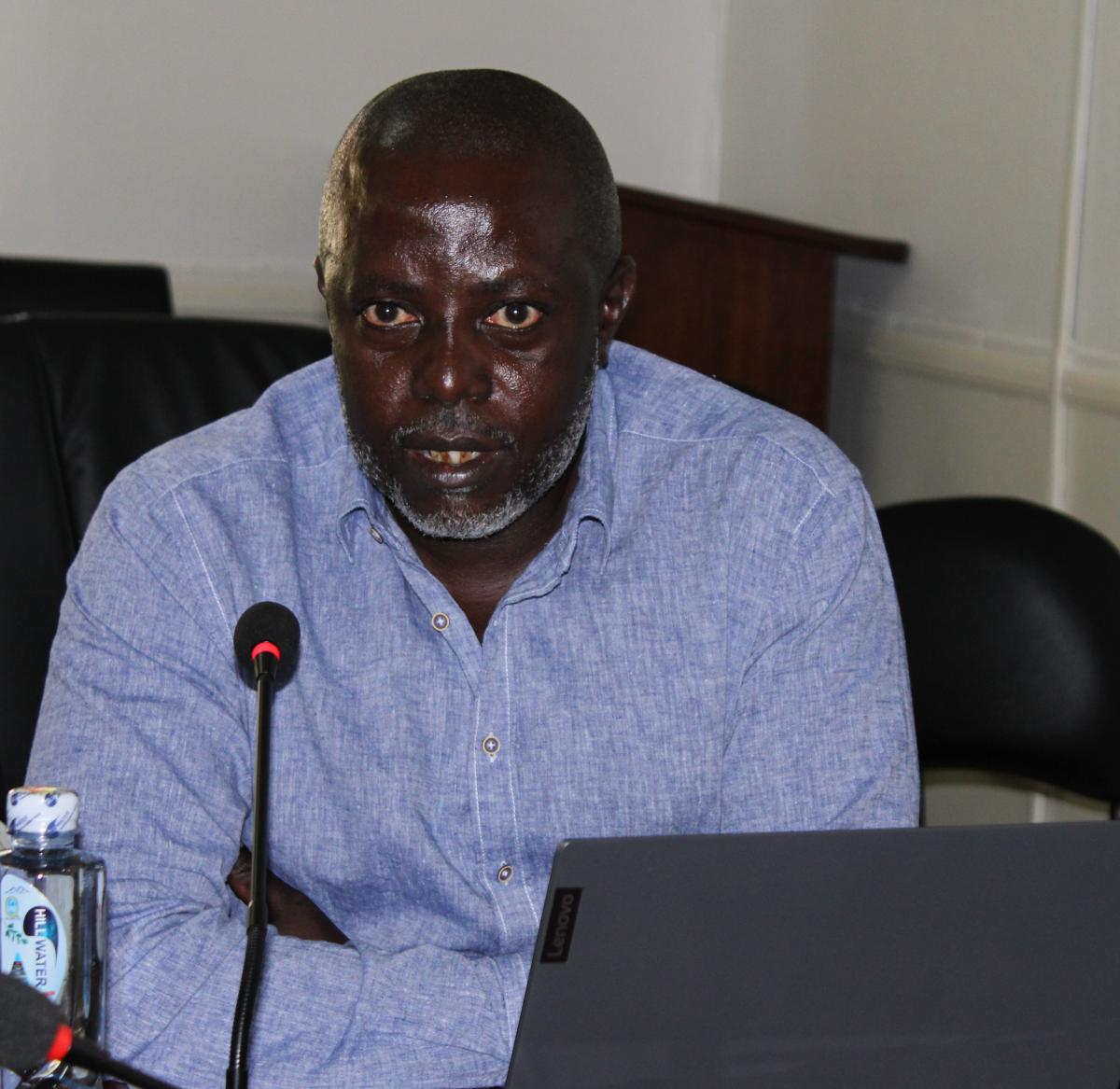
About 40 PhD students from the College of Humanities & Social Sciences(CHUSS) were on 16th May 2022 retooled on the guidelines and expectations from the Directorate of Research and Graduate Training(GRGT).
Besides reviewing guidelines and timelines to funded students, DRGT requirements and expectations, the graduate workshop was also aimed at equipping students with knowledge on how to organise proposals and dissertations electronically as they navigate through their graduate studies.
The blended workshop held physically and virtually at the Makerere University CHUSS Smart Room was compulsory to all the Gerda-Henkel and Andrew W Mellon Fellows who have not yet submitted their dissertations for examination.
“One of the major items is to remind them of the DRGT regulations of doing research. Sometimes in the excitement of admission, they do not read the joining rules very closely, and they go missing certain timelines. For instance, there is a provision in the rules which says that they have to provide progress reports every six months and most of them don’t and we meet challenges when they complete. They are supposed to register every year but most of them do not care.

The other part of the training is how to manage their work using online tools like managing references and quotations. It has been a challenge that they get a book or referencing in year one as they are about to submit, they do not have the details of the book and the quotation”, The Projects Coordinator CHUSS, Dr. Nabutanyi, explained.
Dr. Nabutanyi said the college wants to support the students to be able to do their work effectively and without the challenges they would incur while doing it on their own. He also appealed to all students to attend all college and university wide workshops to gain skills useful to their studies and their future life as academics.
Orienting students on the DRGT requirements and expectation, the CHUSS Coordinator for graduate programs Dr. Zaid Sekito noted that PhD programs in the college are conducted by research, hence the need for such workshops to help students get grounded in policies, approaches and all mechanism that are required of them to ensure successful and timely completion of their studies.

“I reminded them of the DRGT requirements and expectations which are embedded in the revised Graduate manual 2021.The students did not know many of these things. All PhD students should always endeavor to attend these workshops otherwise they will continue to lose out and they should practice what they have practically learnt”, Dr. Sekito said.
He outlined some of the key DRGT requirements including registration, possession of all required certified academic transcripts and certificates, progress reports, the ethical requirements and the examination itself involving the submission of the Dissertation and the viva voce.
During the hands on session, Dr. Jjingo Caesar, guided students on how to organize proposals and dissertations electronically. The graduate manual specifies how dissertations are supposed to be structured.
“Previously, students were not uploading their dissertations online but now, it is a requirement for a student to graduate. If you look at the uploaded dissertations on the portal, they have so many errors that can be easily minimized. Most of the students are not good at the process, but when introduced to the process, they can easily adapt and learn and do as required.

Given that I have shown them the process, let them put in practice what they have learnt today. We need to have these kind of training regularly so that we do not put the students away from the process, it has to be a recurring and continuous process as the way forward”. Dr. Jjingo advised.
Dr. Jjingo practically worked with students and demonstrated issues to do with page setup, formatting marker and navigation panel, inserting blank pages, page numbers, chapter headings and styles. Others were inserting section headings and styles, tables, figures and captions, cross referencing, hyperlinks and inserting table of contents.
